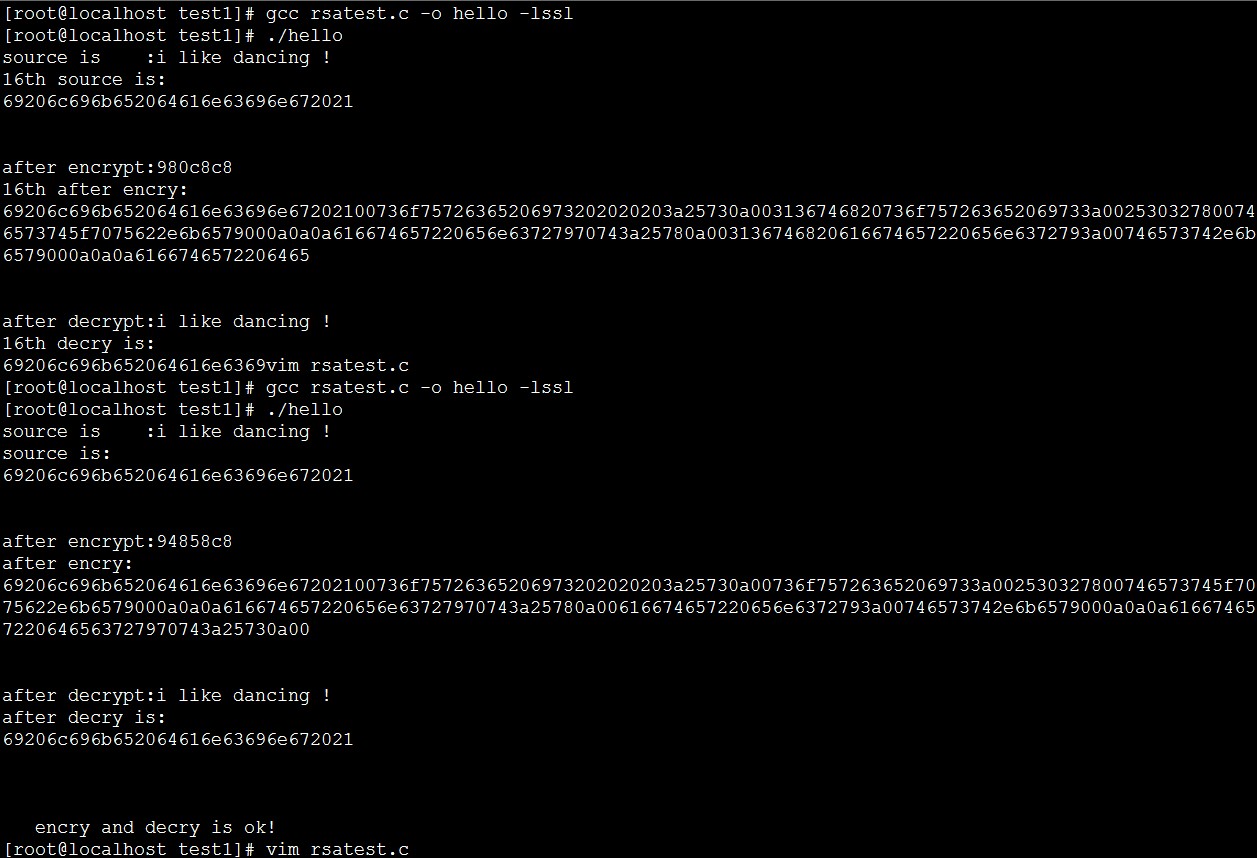linux下使用openssl 加解密
阿新 • • 發佈:2018-12-31
安裝完成後,產生RSA公鑰和私鑰
輸入openssl進入程式
OpenSSL> genrsa -out test.key 1024
產生了1024bit的私鑰,然後根據該私鑰產生公鑰
rsa -in test.key -pubout -out rsatest_pub.key
建立rsatest.c程式碼如下
vim rsatest.c
#include<stdio.h>
#include<stdlib.h>
#include<string.h>
#include<openssl/rsa.h>
#include<openssl/pem.h> 檢驗結果,gcc rsatest.c -o hello -lssl
最後-lssl 是為了引入共享庫ssl

